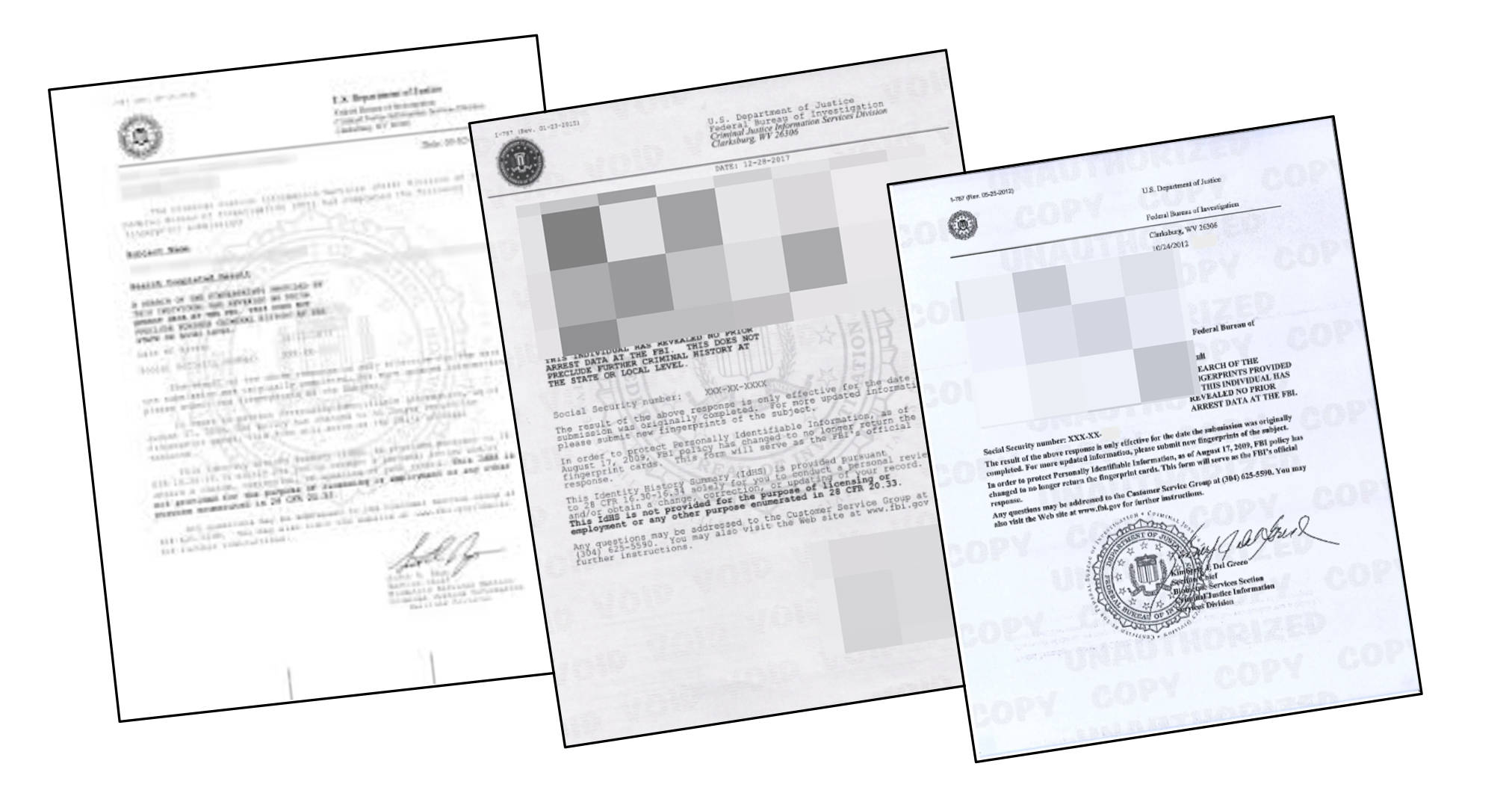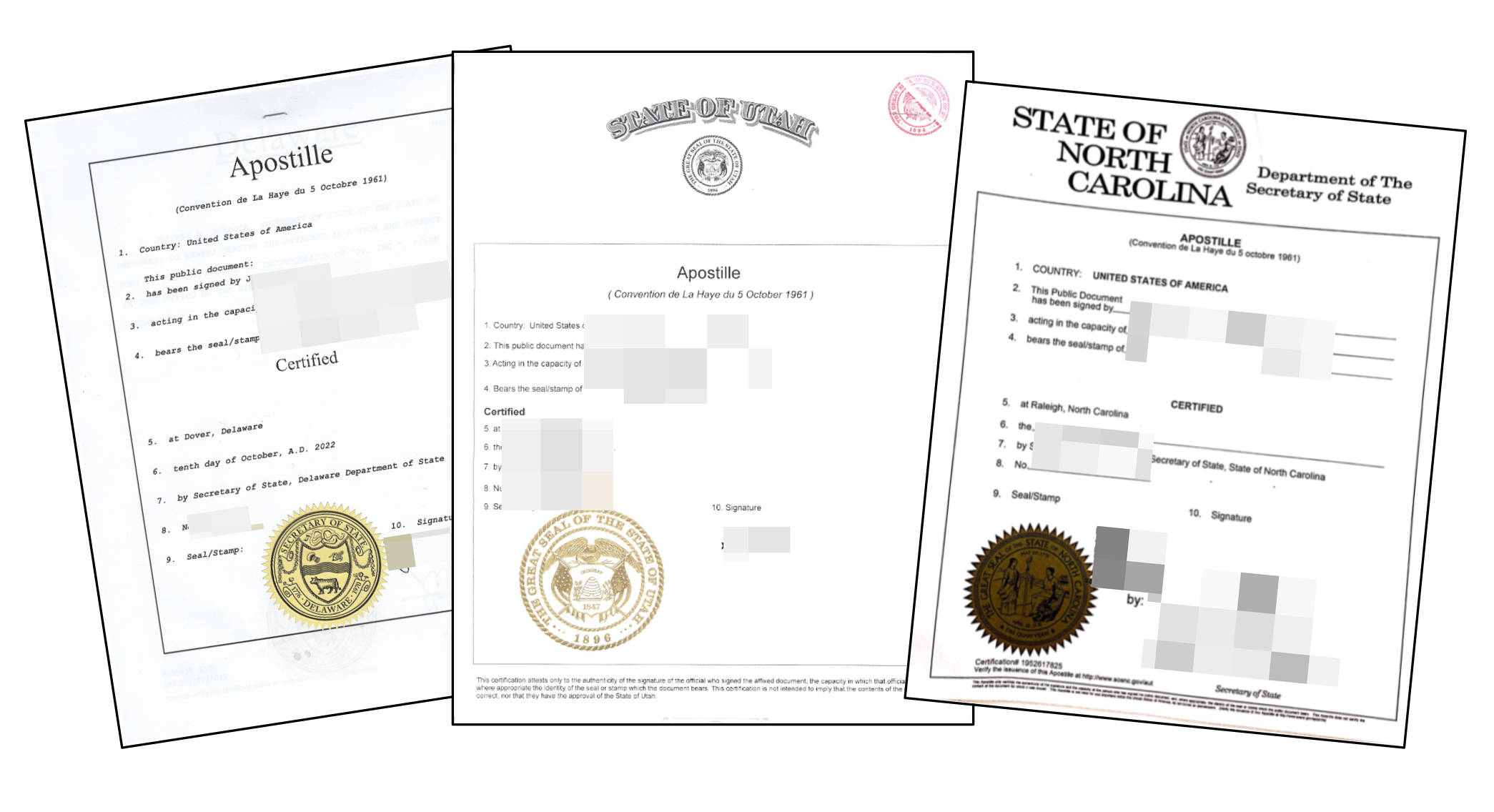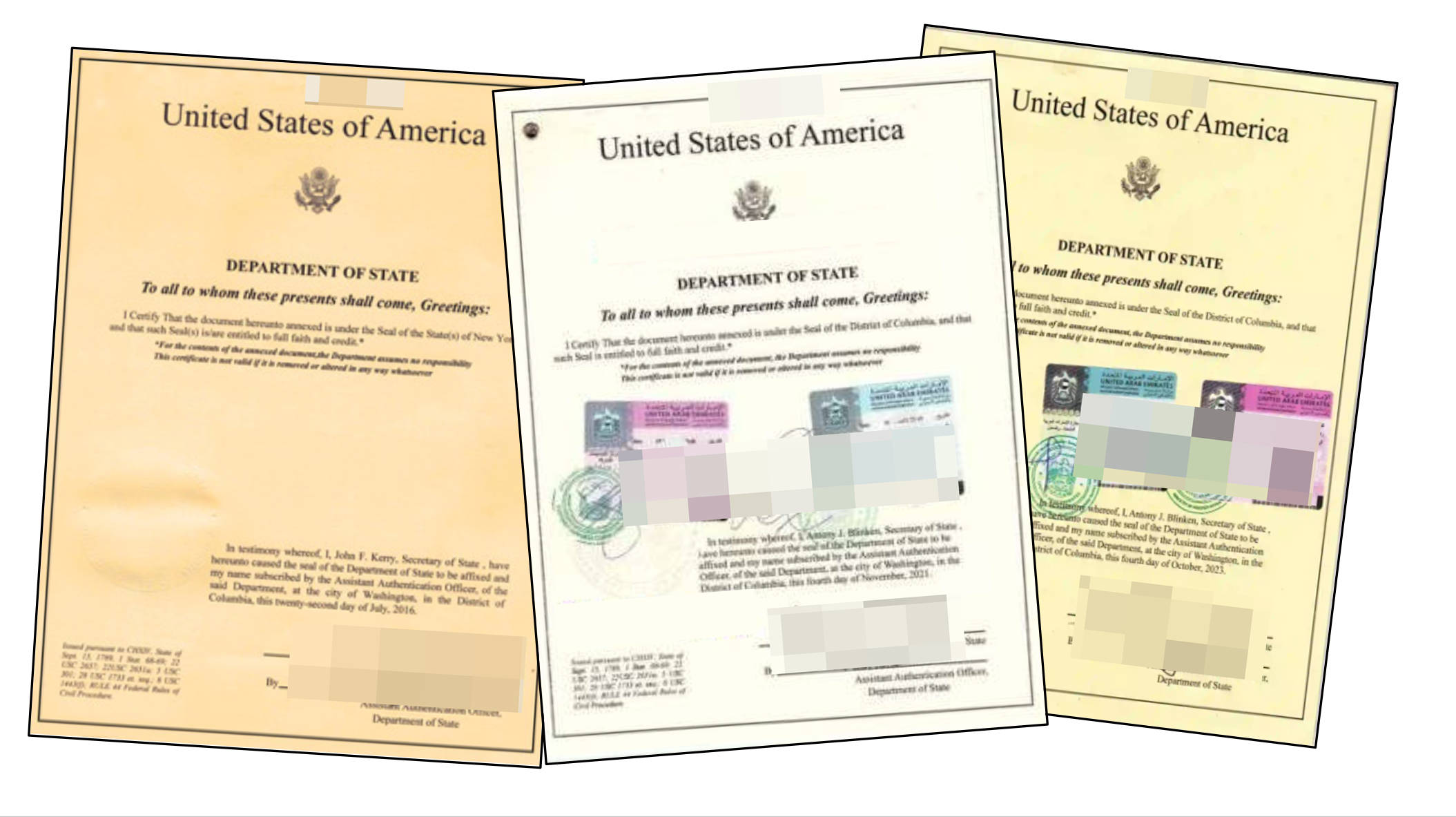The American FBI background survey Hague certification, consulate certification, consulate certification

Personal cross-border activities are becoming increasingly frequent, whether for work, study, or residency. In such cases, officially certified personal documents are often required to verify an individual’s legal and credit records. Common examples of such documents include the FBI background check report, Hague Apostille, and consular authentication in the United States. This article will explain the meaning and certification process of these documents in detail, as well as how the Washington DC Notary Office provides agency services.
What is the FBI Background Check?
The FBI Background Check is a process that searches an individual’s past criminal records through the FBI’s National Crime Information Center (NCIC) database. This background check provides a detailed record of whether a person has a criminal history and is often a required document for international employment, immigration, or other legal purposes. The report may include information such as arrest records, convictions, court records, and other relevant legal details.
FBI Background Check: A Real-World Example
The FBI Background Check isn’t as mysterious as many people think. In most cases, this document is issued by the Criminal Justice Information Services (CJIS) division of the FBI, located in Clarksburg, West Virginia. Essentially, this is the official agency that verifies your past records—like a certificate proving you have a clean record.
So why would someone need an FBI background check? For example, if you’re in China and need official U.S. background documentation for certain situations—such as applying for a work permit, handling immigration paperwork, registering for marriage, or applying for a security-sensitive position at a multinational company—this internationally recognized FBI background check can serve as proof of your personal credibility and lack of a criminal record.
In the past, using U.S. documents in China required a complicated consular authentication process. This often meant going through multiple steps—visiting U.S. notaries, the Secretary of State’s office, and then the Chinese embassy or consulate in the U.S.—before the document was officially recognized in China. The process was time-consuming and tedious.
However, in recent years, legal cooperation between countries has become more streamlined. Notably, on March 8, 2023, China officially joined the Convention Abolishing the Requirement of Legalization for Foreign Public Documents (commonly known as the Hague Apostille Convention). The convention took effect in China on November 7, 2023.
In simple terms, this means that China now recognizes foreign notarized and certified documents issued by other member countries of the convention, following the Apostille process. As a result, for documents like the FBI Background Check, once they receive an Apostille certification, they can be used directly in China—eliminating the need for multiple layers of authentication.
Of course, obtaining a Hague Apostille for an FBI Background Check requires more than just the original report issued by the FBI. The document must go through a qualified agency to receive the necessary notarization and state authentication in accordance with U.S. regulations before the Apostille can be applied.
Many clients choose to entrust this process to professional service providers like the Washington DC Notary Office, which has extensive experience in the U.S. capital region. They are well-versed in federal and state notarization and authentication requirements and know how to efficiently handle the entire process—from obtaining the FBI report to notarization, state authentication, and final Hague Apostille certification.
By choosing to have the Washington DC Notary Office assist with the Apostille certification of their FBI Background Check, clients can save significant time and effort while ensuring that their documents will be accepted and used smoothly in China. For example, someone applying for a job in Beijing may need to provide an official no-criminal-record certificate to their employer. Likewise, someone in Shanghai handling immigration procedures may require a properly certified background check as part of their application.
With an FBI-issued background check, processed by a professional agency in Washington DC, and finalized with a Hague Apostille, individuals can seamlessly proceed with their affairs in China—without the hassle of navigating a lengthy and complex authentication process.
This reflects the progress in international legal coordination and makes cross-border work, immigration, study, and daily life more convenient and reliable for individuals.
We share case examples to help you better understand the relevant processes and application scenarios.
Please note: The company names and personal names mentioned in this explanation are entirely fictional. Any resemblance to real companies or individuals is purely coincidental.
These cases serve as reference material only, providing a framework for thinking and decision-making so that you have a better basis for making informed choices. When applying case information, please carefully consider your own situation and seek professional advice or further verification if necessary.
What is the U.S. Hague Apostille (Apostille Certification)?
The Hague Apostille, also known as “Apostille”, is an international certification process used for public documents exchanged between countries that are members of the Hague Convention.
If you need to use a U.S. public document—such as a birth certificate, marriage certificate, or FBI Background Check report—in another country that is a signatory to the Hague Convention, the document must go through the Apostille certification process. This ensures that the document is legally recognized in all participating countries.
What is U.S. Consular Authentication (Authentication)?
Consular Authentication, also known as “Authentication,” is the official certification process required for documents being used in countries that are not members of the Hague Convention.
If you need to use a U.S. document in a non-Hague Convention country, the document must first receive authentication from the U.S. Department of State. In many cases, it may also require further authentication from the embassy or consulate of the destination country in the U.S.
This process ensures that the document holds the same legal validity in the receiving country as it does in the United States.
Washington DC Notary Office Provides Authentication Services
The Washington DC Notary Office is a professional agency specializing in document authentication and legal services. Whether you need an FBI Background Check, Hague Apostille, or Consular Authentication, their expert team can provide comprehensive processing services. From preparing documents to submitting applications, they ensure that your documents are widely accepted and officially recognized worldwide.
In addition, the agency offers consultation services to help clients understand complex legal requirements and procedures, ensuring a smooth and worry-free document processing experience.
As global mobility becomes increasingly common, properly handling and certifying legal documents is more important than ever. Choosing the right agency for professional services not only saves time but also helps you avoid unnecessary complications in international legal matters. The Washington DC Notary Office is your trusted partner in this field.
Apostille Sample

Authentication Sample
